Every day, we receive many questions from our clients, customers, and those asking as an official Odoo partner. Because of this, we would like to answer 10 frequently asked and sometimes funny questions that we have been hearing all the time over the past few years. In this article, we would like to share our experience and answer all these questions.
Also, we made a video on the same topic. You can watch it already on our YouTube channel – youtube.com/watch?v=10questions
Table of contents
- Why do you call Odoo a LEGO?
- What is the cost of Odoo for my business?
- Can I start with the Community version, and then later switch to the Enterprise Edition?
- Do I have additional costs after it goes live?
- Is Odoo only for SME businesses?
- Which is better, buy an app on Odoo Store or pay for development?
- I’d like to work with you, because you did the same project before. Will I save money?
- Odoo is released each year. Is upgrading complicated?
- Should I run my accounting in Odoo?
- Are you really a good Odoo partner?
1. Why do you call Odoo a LEGO?
That terminology comes from the article we published long ago. Check it out here. Basically, you cannot just install and use Odoo ‘as is.’ Odoo Standard closes only basic processes.
You may say: “But we are pretty standard. We are purchasing goods and selling them online. Nothing special.”
But still…NO! You will still have to adjust small things related to purchasing, pricing, inventory management, and so on.That is why we call Odoo a customizable business framework, rather than a business solution. You can adjust functionality using Odoo as a LEGO bricks. So be sure to find a qualified Odoo integrator – a ‘Lego artist’ for your business.
2. What is the cost of Odoo for my business?
This is a huge question that deserves a separate article. But let’s try to understand how the Odoo implementation cost is formed. The Odoo implementation price has three main parts:
- The cost of an Enterprise contract that is paid annually.
- Project implementation cost before going live.
- The costs of maintaining and improving the system throughout the entire use period.
Briefly, about each:
Cost of an Enterprise contract
The cost of an Enterprise project depends on the number of system users and the modules that need to be installed. Odoo has a price configurator, where you and your partner can calculate the cost of your contract. This can be done in just a few minutes.
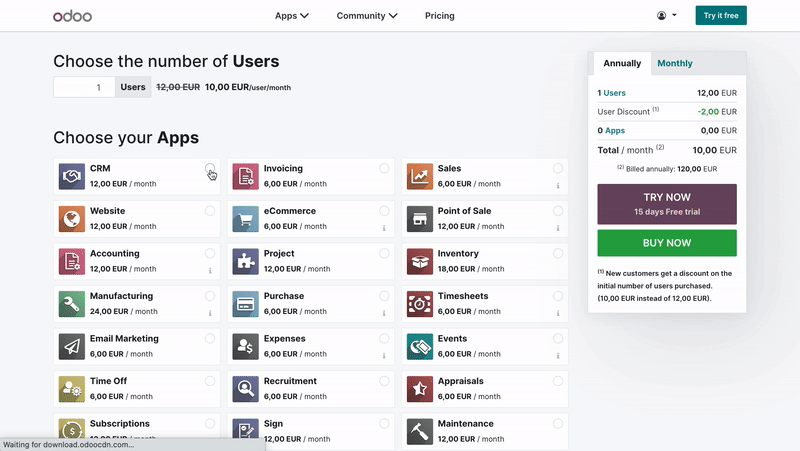
It’s important to note, that the price per module and user differs depending on your country. For example, the price per user per month in the United States and Western Europe will be about $20 or €20, respectively; in Eastern Europe and Asia, about €12 , and about €6 in African countries.
” For a typical average company of 25–30 people that uses 12–15 modules, the cost of a contract for a US company will be about $10,000 per year. For the exact same company setup in Africa, the price may be three times less. “
The cost of the project before going live
An accurate calculation of the cost of the project can be carried out only after a complete analysis of all the customer’s needs. The goal of a good integrator is to do the minimum amount of work needed to get started, and leave the rest for later. And as you know, many customer requirements fall off a couple of weeks after going live.
What is the budget for an average, typical project?
” You should expect a minimum of 4–6 months of implementation and a budget in the 25K–45K EUR range. “
Of course, this estimate is rough and depends heavily on project specifications.
Support cost
This is the most difficult question. Your project may well get by with a little consultation and administration of your servers. However, a few weeks after the implementation of the ERP system, customers begin to understand exactly where they need improvements, and where they should pause development.
After that, you will definitely want to modify existing modules or write new ones. You will likely want to introduce new requirements and consider the learning process.
” Remember, you need a good integrator for the entire time that you use Odoo. “
3. Can I start with the Community version, and then later switch to the Enterprise Edition?
Yes, you can. But remember that Community is missing many features. You will have to customize a lot to make it work. And then there will be no easy button for a quick upgrade to Enterprise. You will need to repeat the same work again when moving to the Enterprise.
 Usually for Odoo integrator, it means starting a new project from scratch, because many Community customizations are already available in Odoo Enterprise standard. Switching later on means a new analysis, data migration, and development. So, this path will be long and expensive. Approximately two times more expensive than starting from the Enterprise Edition.
Usually for Odoo integrator, it means starting a new project from scratch, because many Community customizations are already available in Odoo Enterprise standard. Switching later on means a new analysis, data migration, and development. So, this path will be long and expensive. Approximately two times more expensive than starting from the Enterprise Edition.
4. Do I have additional costs after it goes live?
The golden rule here is that:
” If you are using a system and it is bringing you value, you will never stop investing in it and improving it. Zero cost after going live may mean only one thing – you are not using it. “
If we’re talking just about maintenance, then we need to consider many factors:
- System load due to growing amounts of data, such as sales orders, incoming and outgoing shipments, etc.
- Change requests from business users.
- Servers and environment maintenance.
- Support in case of issues and questions during day-to-day work
So when talking about numbers, expect around 200–300 hours every 6 month. And that is if no active development is involved.
5. Is Odoo only for SME businesses?
No, that’s not true. When we talk about a medium-sized business, we are talking about a company of up to 250 people. The Odoo portfolio includes companies such as Aristo Group, Elton Group, Toyota, and many others. We ourselves implemented Odoo for a company that employs 2,000 people.
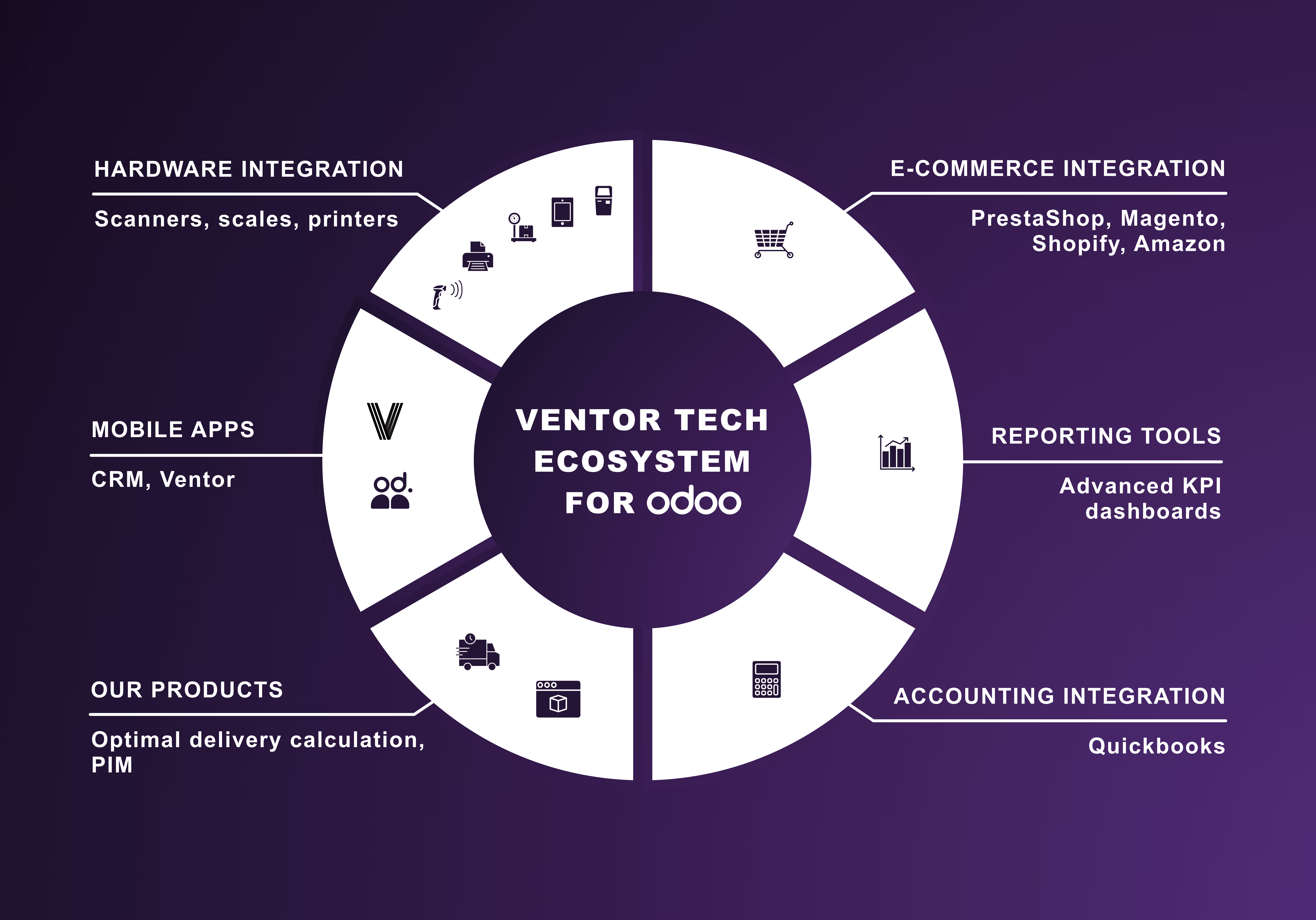
Most often, when customers ask such a question, it is about system scalability. They usually have 20–50 employees, they use Excel, Trello, Gmail, and Google Docs. They understand that it is time to move to a new system. But nobody wants to implement a system that will need to be changed again within a couple of years, such a process would be expensive and inefficient.
” Odoo scales easily and grows with your business. You can start with 5 people and grow to 500 easily. “
This is a great advantage. But keep in mind that for such growth, you need a good administrator who knows the specifics of working with Odoo. System scaling includes increasing server capacity, load balancing, and ongoing administration of the server operating system. A good Odoo integrator always has such an administrator on the staff.
6. Which is better, buy an app on the Odoo Store or pay for development?
During project budget discussions, we may hear: “You price this functionality at 10K euros, but I see a module on the Odoo App Store for 10 euros that does about the same.”
You should know that a good Odoo integrator has already analyzed all free and paid modules, before presenting the budget to you. They pick their teeth reviewing different Odoo solutions. Unfortunately, there are NO quality checks within the Odoo App Store. So if your integrator is saying that this module is trash, then trust them.
7. I’d like to work with you, because you did the same project before. Will I save money?
More often company come to us with a question like this: “Hey, I saw there in your portfolio that you did a project for a company that does the same thing as my business. You’ve already done everything, right? So can you just repeat what you did for our competitors?”
And we really can save some of the time, because we have already worked with a similar business. We know what needs to be done. However, each new client is unique and has a separate project.
Many modules that were made for the previous customer will fit the new configuration, but changes will still be required. Often, these changes take longer than writing a module from scratch.
Also, as a new client, you will most likely be running the most recent version of Odoo. But past projects have been implemented on older versions of the system. This means that we will definitely not be able to reuse the code without migration.
” System implementation is 70% analysis, communication, testing, and personnel training. Only 30% is pure development. “
 Our task is to teach you how to use the system, tell you how to use it in a right way, and help you to not waste money. And only then can we start developing if there are simply no other ways to solve specific problems.
Our task is to teach you how to use the system, tell you how to use it in a right way, and help you to not waste money. And only then can we start developing if there are simply no other ways to solve specific problems.
” Each new project is a truly new project that will have about the same budget as the one that we did in the past. “
8. Odoo is released each year. Is upgrading complicated?
This is actually a big pain point for our customers. With new updates Odoo usually releases serious improvements for some particular parts of the system and makes performance improvements.
But remember that we are not talking about mobile app updates. ERP is the core system in your company.
So, the upgrade process is stressful for all involved, and it will consume much time and money.
” We recommend upgrading every two versions. But in general, your Odoo Integrator can decide when upgrades are reasonable. “
9. Should I run my accounting in Odoo?
Actually, there are two approaches to accounting integration. Use local specialized software and integrate it with Odoo or use Odoo as an accounting system. The recommended way is to use a single system (Odoo) for all processes.
In our experience we have done both ways, for example we integrated Odoo with QuickBooks. So in general, all depends on you needs and decided on a case-by-case basis.
More info about Odoo QuickBooks Online (Intuit) connector from VentorTech – https://www.youtube.com/watch?v=nU6yESjtZK0&t
10. Are you really a good Odoo partner?
Yes, we are good Odoo partners. We have been implementing Odoo for more than 10 years, and during this time, we have implemented more than 50 large projects and dozens of smaller ones. We solved our clients’ business problems and helped them grow from year to year. We have been working with many of our major customers for more than seven years.
You can easily get good reviews from our customers, from almost anywhere in the world: United States, Europe, and even Australia. We work all over the world and always focus on quality and long-term relationships.
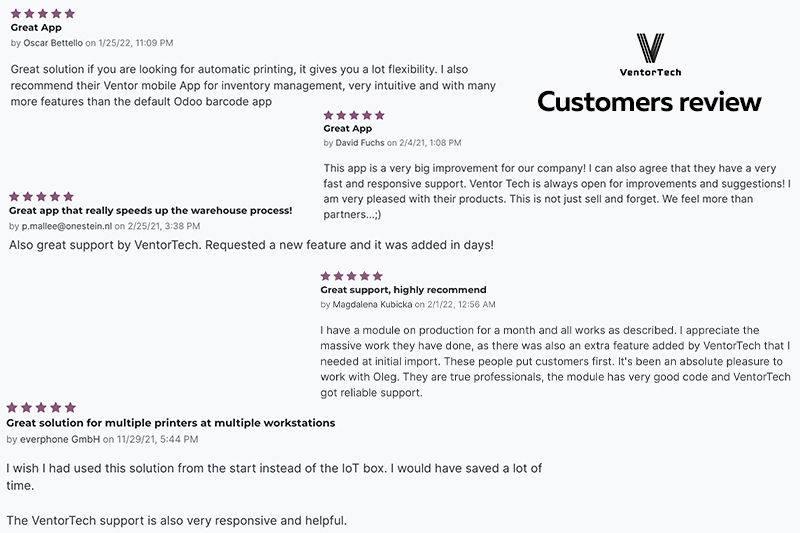
Advice that we can give to those who are looking for a good partner: talk to others who have already worked with this Odoo implementation partner, ask them what they liked about working with their partner and what they didn’t like as much. This is the most important tip.
Also, be sure to ask if the company has certified Odoo specialists – this is important. And of course, look for a team with which you enjoy communicating, because together you will need to go a rather long way. This will help in all ways..
We hope that you have found answers to your questions in our article. If you have any questions or would like to learn more about working with us, then feel free to leave your comments under this article. We look forward to hearing from you!
Calculate the price for your Odoo project
Follow our Linkedin account and subscribe to our newsletter to make sure you don’t miss updates.

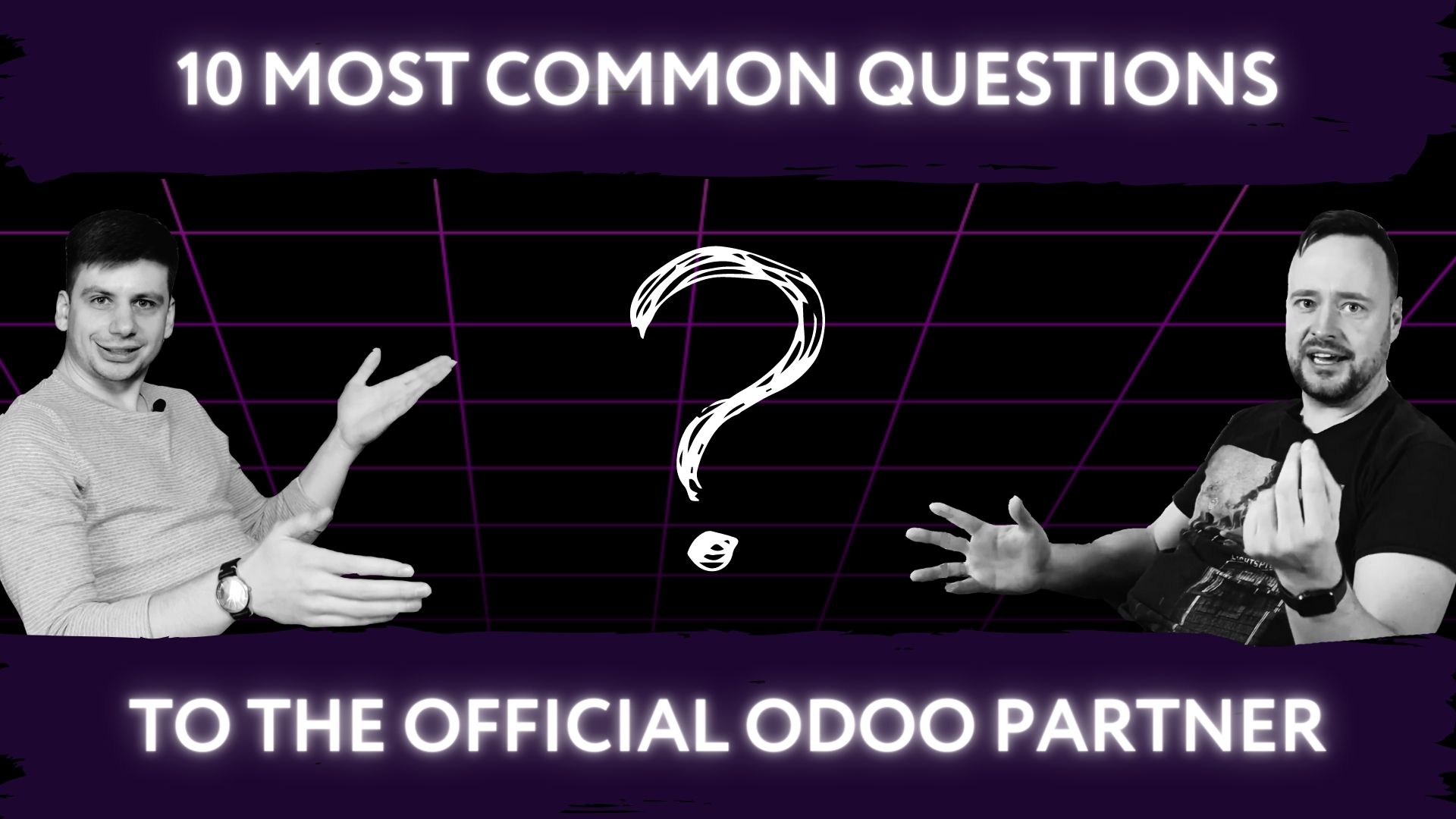

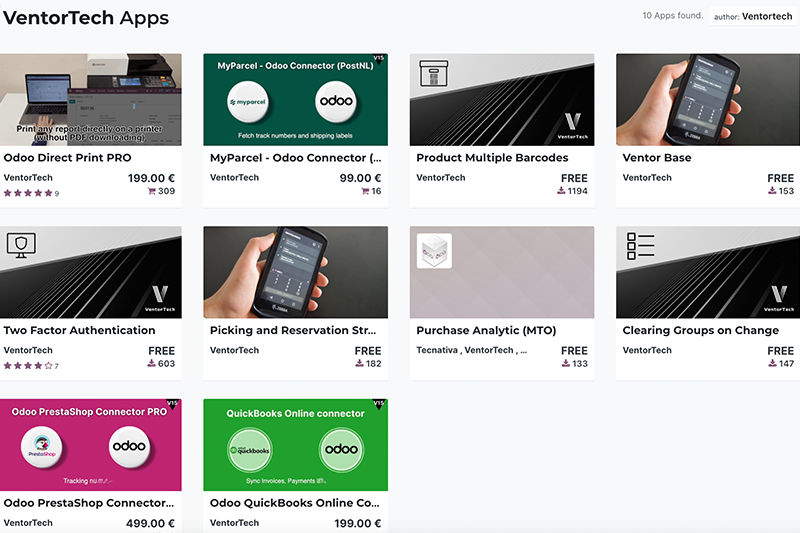
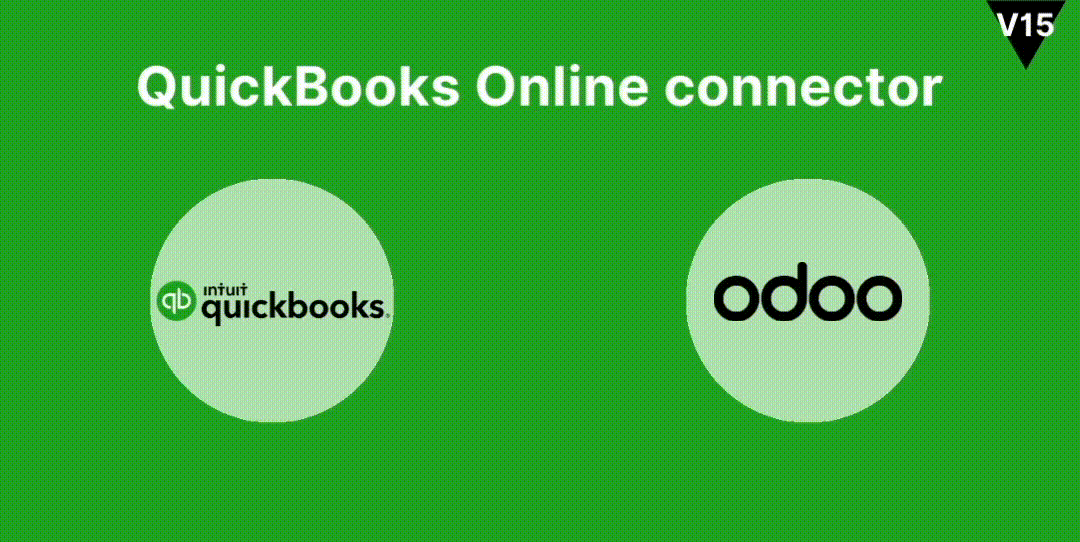


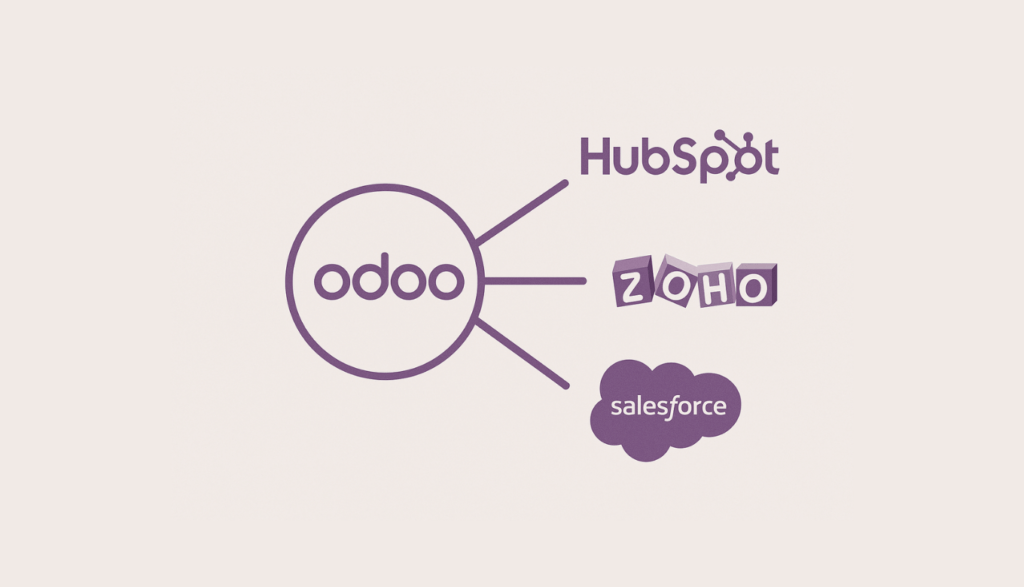
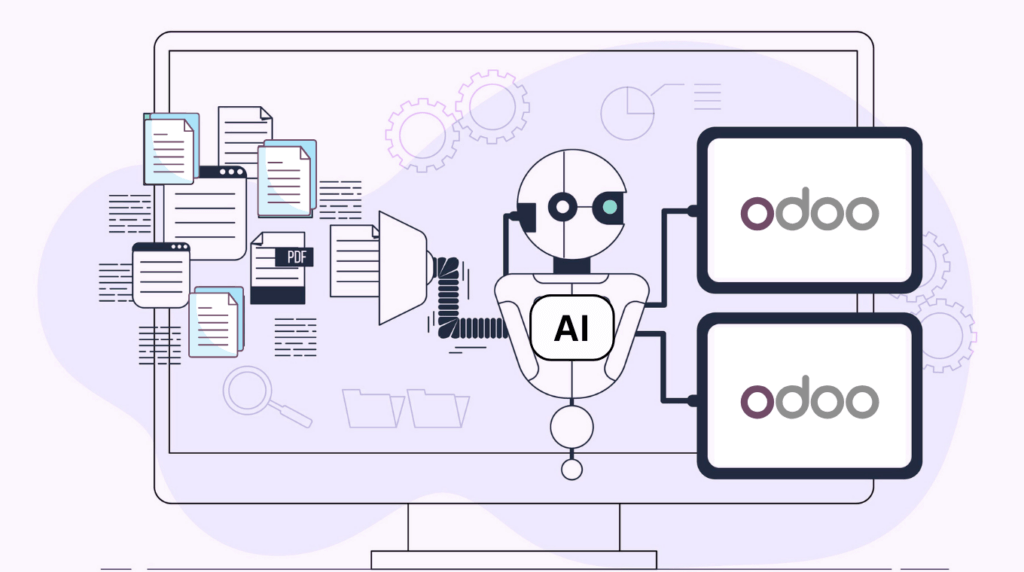
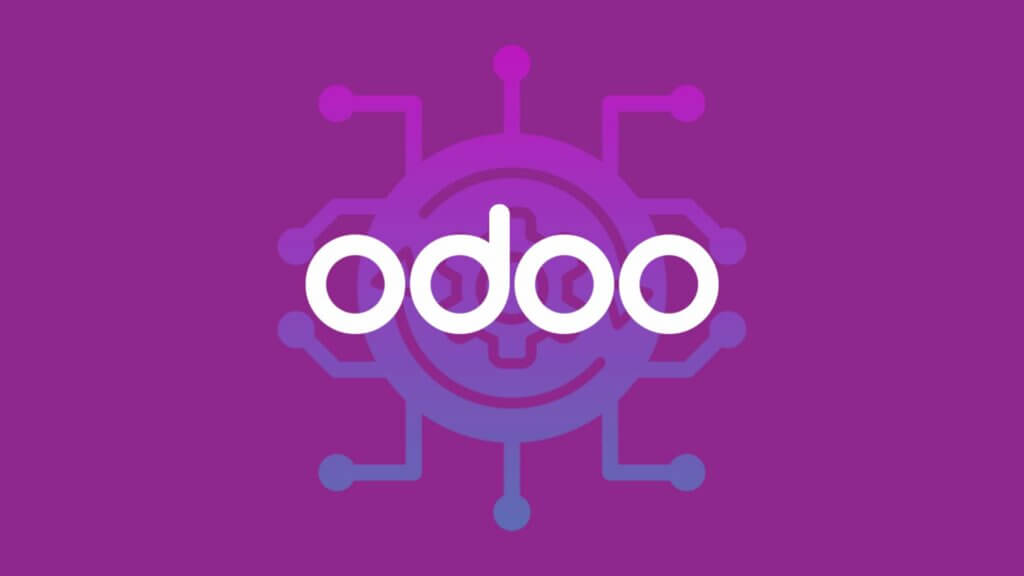
0 Comments